Scan barcode
You can start and finish this challenge whenever you like!
New York Times list of 100 Best Books of the 21st Century released the week of July 8-12 2024.
The books have been chosen and voted on by "503 novelists, nonfiction writers, poets, critics and other book lovers — with a little help from the staff of The New York Times Book Review."
Notes on the books are directly from the New York Times list found here: https://www.nytimes.com/interactive/2024/books/best-books-21st-century.html?campaign_id=69&emc=edit_bk_20240712&instance_id=128589&nl=books®i_id=164072357&segment_id=171975&te=1&user_id=3ab9436b06f81b9833612400b0023456#book-80
There is no start or end date for this challenge.
The books have been chosen and voted on by "503 novelists, nonfiction writers, poets, critics and other book lovers — with a little help from the staff of The New York Times Book Review."
Notes on the books are directly from the New York Times list found here: https://www.nytimes.com/interactive/2024/books/best-books-21st-century.html?campaign_id=69&emc=edit_bk_20240712&instance_id=128589&nl=books®i_id=164072357&segment_id=171975&te=1&user_id=3ab9436b06f81b9833612400b0023456#book-80
There is no start or end date for this challenge.
Challenge Books
25
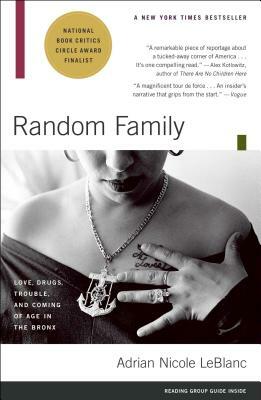
Random Family: Love, Drugs, Trouble, and Coming of Age in the Bronx
Adrian Nicole LeBlanc
More than 20 years after it was published, “Random Family” still remains unmatched in depth and power and grace. A profound, achingly beautiful work of narrative nonfiction, it is the standard-bearer of embedded reportage. LeBlanc gave her all to this book, writing about people experiencing deep hardship in their full, lush humanity. — Matthew Desmond, author of “Evicted: Poverty and Profit in the American City”
26
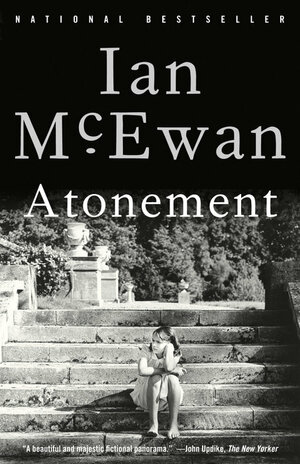
Atonement
Ian McEwan
Each of us is more than the worst thing we’ve ever done, or so the saying goes. But what a naïve, peevish 13-year-old named Briony Tallis sets in motion when she sees her older sister flirting with the son of a servant in hopelessly stratified pre-war England surpasses disastrous; it’s catastrophic. It’s also a testament to the piercing elegance of McEwan’s prose that “Atonement” makes us care so much.
27
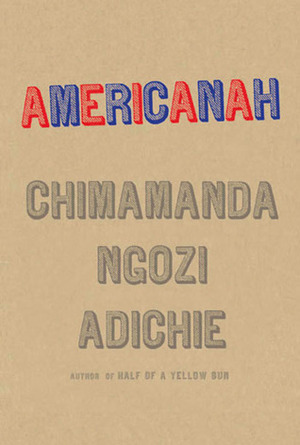
Americanah
Chimamanda Ngozi Adichie
This is a love story — but what a love story! Crisscrossing continents, families and recent decades, “Americanah” centers on a Nigerian woman, Ifemelu, who discovers what it means to be Black by immigrating to the United States, and acquires boutique celebrity blogging about it. (In the sequel, she’d have a Substack.) Ifemelu’s entanglements with various men undergird a rich and rough tapestry of life in Barack Obama’s America and beyond. And Adichie’s sustained examination of absurd social rituals — like the painful relaxation of professionally “unacceptable” hair, for example — is revolutionary. — Alexandra Jacobs
28
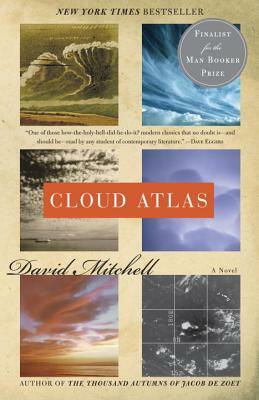
Cloud Atlas
David Mitchell
Mitchell’s almost comically ambitious novel is indeed a kind of cumulus: a wild and woolly condensation of ideas, styles and far-flung milieus whose only true commonality is the reincarnated soul at its center. The book’s six nesting narratives — from 1850s New Zealand through 1930s Belgium, groovy California, recent-ish England, dystopian Korea and Hawaii — also often feel like a postmodern puzzle-box that whirls and clicks as its great world(s) spin, throwing off sparks of pulp, philosophy and fervid humanism.
29
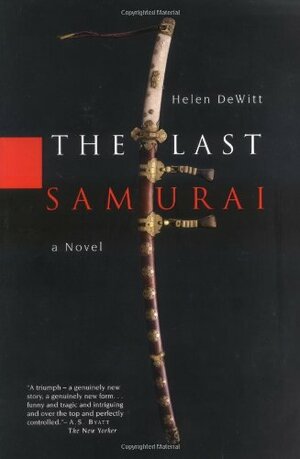
The Last Samurai
Helen DeWitt
Sibylla, an American expat in Britain, is a brilliant scholar: omnivore, polyglot, interdisciplinary theorist — all of it. Her young son, Ludo, is a hothouse prodigy, mastering the “Odyssey” and Japanese grammar, fixated on the films of Akira Kurosawa. Two questions arise: 1) Who is the real genius? 2) Who is Ludo’s father? Ludo’s search for the answer to No. 2 propels the plot of this funny, cruel, compassionate, typographically bananas novel. I won’t spoil anything, except to say that the answer to No. 1 is Helen DeWitt. — A.O. Scott
30
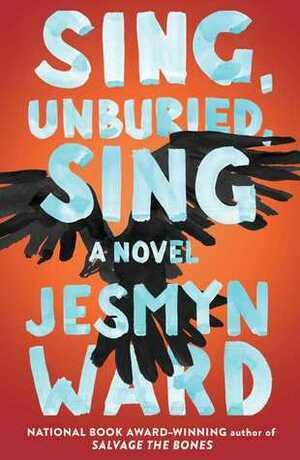
Sing, Unburied, Sing
Jesmyn Ward
Road trips aren’t supposed to be like this: an addled addict mother dragging her 13-year-old son and his toddler sister across Mississippi to retrieve their father from prison, and feeding her worst habits along the way. Grief and generational trauma haunt the novel, as do actual ghosts, the unrestful spirits of men badly done by. But Ward’s unflinching prose is not a punishment; it loops and soars in bruising, beautiful arias.
31
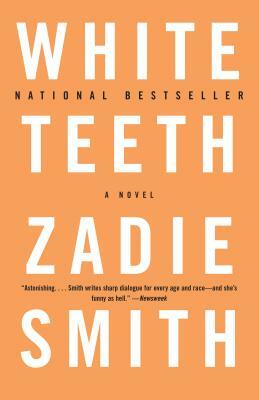
White Teeth
Zadie Smith
“Full stories are as rare as honesty,” one character confides in “White Teeth,” though Smith’s debut novel, in all its chaotic, prismatic glory, does its level best to try. As her bravura book unfurls, its central narrative of a friendship between a white Londoner and a Bengali Muslim seems to divide and regenerate like starfish limbs; and so, in one stroke, a literary supernova was born.
32
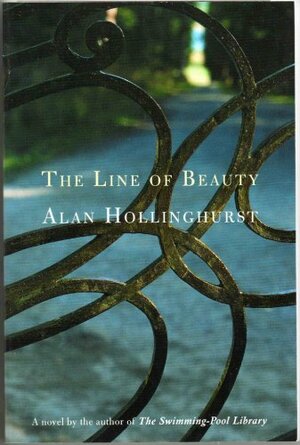
The Line of Beauty
Alan Hollinghurst
Oh, to be the live-in houseguest of a wealthy friend! And to find, as Hollinghurst’s young middle-class hero does in early-1980s London, that a whole intoxicating world of heedless privilege and sexual awakening awaits. As the timeline implies, though, the specter of AIDS looms not far behind, perched like a gargoyle amid glittering evocations of cocaine and Henry James. Lust, money, literature, power: Rarely has a novel made it all seem so gorgeous, and so annihilating.
33
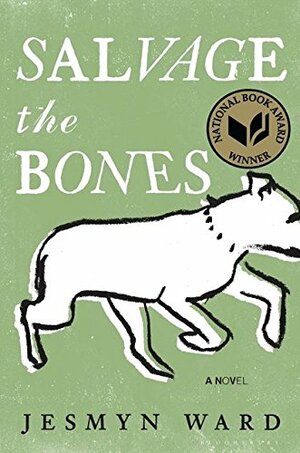
Salvage the Bones
Jesmyn Ward
As Hurricane Katrina bears down on the already battered bayou town of Bois Sauvage, Miss., a motherless 15-year-old girl named Esch, newly pregnant with a baby of her own, stands in the eye of numerous storms she can’t control: her father’s drinking, her brothers’ restlessness, an older boy’s easy dismissal of her love. There’s a biblical force to Ward’s prose, so swirling and heady it feels like a summoning.
34
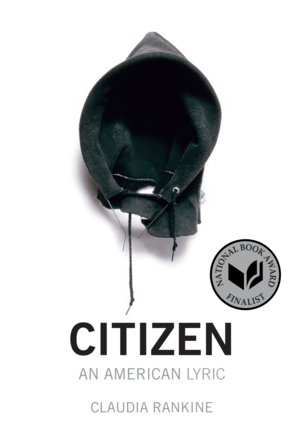
Citizen: An American Lyric
Claudia Rankine
“I, too, am America,” Langston Hughes wrote, and with “Citizen” Rankine stakes the same claim, as ambivalently and as defiantly as Hughes did. This collection — which appeared two years after Trayvon Martin’s death, and pointedly displays a hoodie on its cover like the one Martin wore when he was killed — lays out a damning indictment of American racism through a mix of free verse, essayistic prose poems and visual art; a National Book Critics Circle Award finalist in both poetry and criticism (the first book ever nominated in two categories), it took home the prize in poetry in a deserving recognition of Rankine’s subtle, supple literary gifts.
35
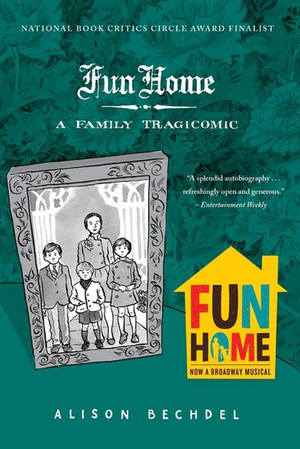
Fun Home: A Family Tragicomic
Alison Bechdel
“A queer business.” That’s how Bechdel describes her closeted father’s death after he steps in the path of a Sunbeam Bread truck. The phrase also applies to her family’s funeral home concern; their own Victorian, Addams-like dwelling; and this marvelous graphic memoir of growing up gay and O.C.D.-afflicted (which generated a remarkable Broadway musical). You forget, returning to “Fun Home,” that the only color used is a dreamy gray-blue; that’s how vivid and particular the story is. Even the corpses crackle with life. — Alexandra Jacob
36
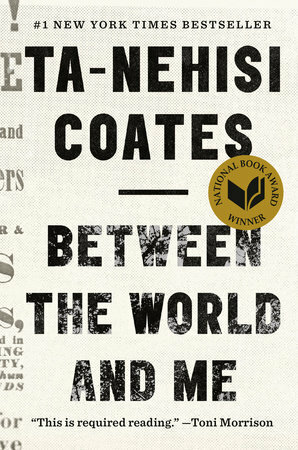
Between the World and Me
Ta-Nehisi Coates
Framed, like James Baldwin’s “The Fire Next Time,” as both instruction and warning to a young relative on “how one should live within a Black body,” Coates’s book-length letter to his 15-year-old son lands like forked lightning. In pages suffused with both fury and tenderness, his memoir-manifesto delineates a world in which the political remains mortally, maddeningly inseparable from the personal.